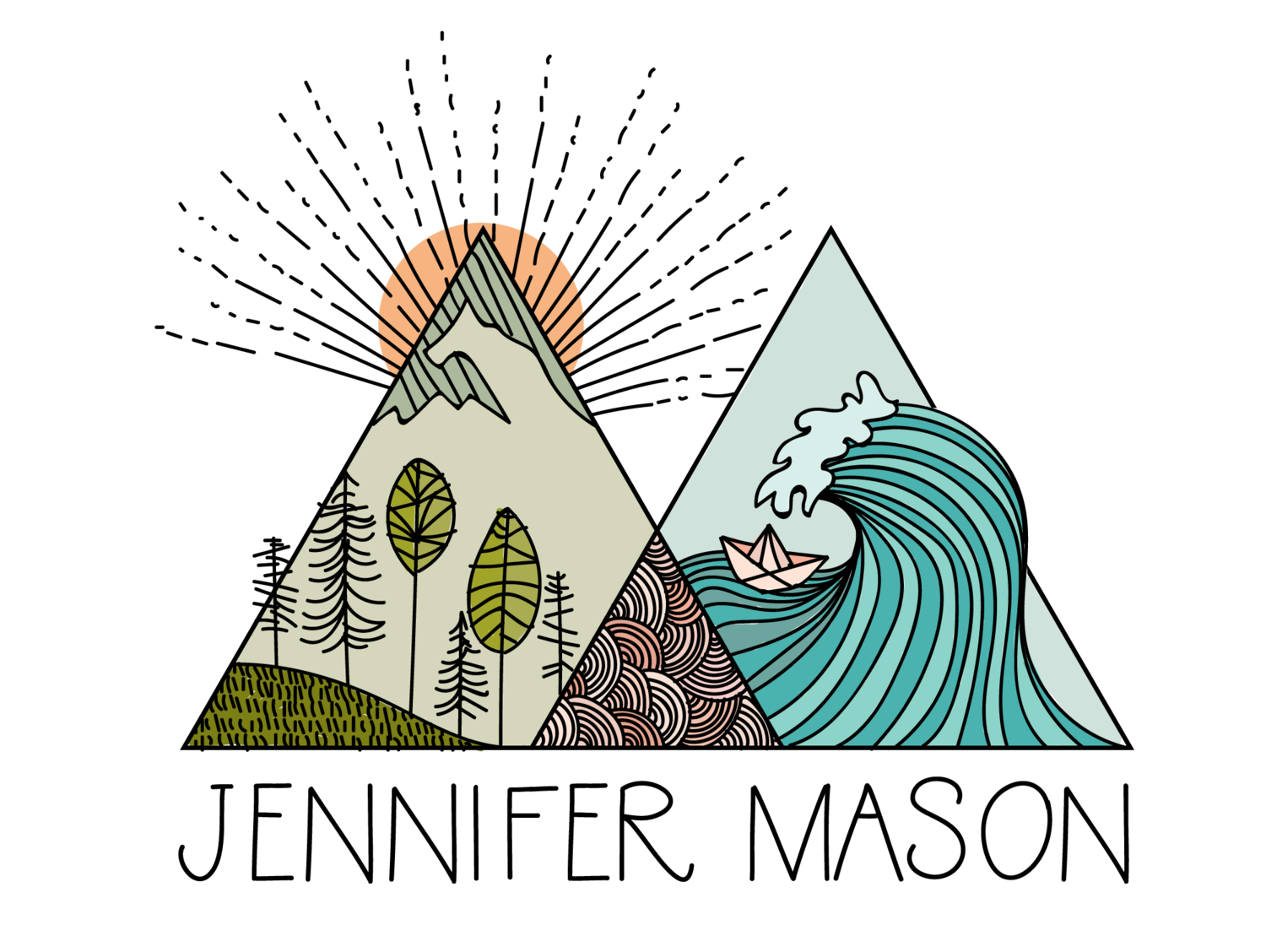Tips for a Photographer's first year
 It has been nearly three years since I've made the decision to switch from landscape photography to portrait photography and it's changed my life for the better! For those who don't know, I was exclusively a landscape photographer for many years, selling prints and even getting a few photos published nationally. At that time, I only wanted to photograph things in nature and I was not interested in photographing people. Then, in early 2011, I became pregnant with my daughter and suddenly everything changed. I knew that portrait photography was my next step and I couldn't wait to dive in. The revelation almost came out of the blue, I woke up one day and knew that I wanted to make a change, so I started learning and building my business that day.
It has been nearly three years since I've made the decision to switch from landscape photography to portrait photography and it's changed my life for the better! For those who don't know, I was exclusively a landscape photographer for many years, selling prints and even getting a few photos published nationally. At that time, I only wanted to photograph things in nature and I was not interested in photographing people. Then, in early 2011, I became pregnant with my daughter and suddenly everything changed. I knew that portrait photography was my next step and I couldn't wait to dive in. The revelation almost came out of the blue, I woke up one day and knew that I wanted to make a change, so I started learning and building my business that day.
For all of 2011 and part of 2012, I practiced photographing people. I didn't charge money, and I photographed friends, family, my dogs, my daughter, and whoever else was interested. It was the first year of my daughters life and I was pretty busy with her anyway, so I practiced when I could, knowing that soon the day would come, when I would have more time. Then, in 2012, I posted an ad on craigslist offering an hour photo session for $75 to build my portfolio {*more about this pricing below}. This was great experience for me because I learned to work with people that I didn't know personally. In a nutshell, in 2012, I assisted other photographers, second shot when I could, started a blog and established a business with fair prices for a new photographer. This post is my way to share some of the big things that I learned along the way; they were invaluable to me. After starting this post, I quickly realized there was too much info for just one blog post, so look for year #2 coming soon. Here are the tips that truly helped me grow in the first year.
1. Meet with other photographers in your area: This was the most valuable thing that I did when starting out, and I owe a lot of gratitude to some of the photographers who helped me in my first year (see credits below). One of my girlfriends introduced me to their friend who is a professional wedding photographer in Denver. Without knowing me, he happily offered to sit down and talk to me; he answered my questions about starting up a business, gave me some networking ideas and shared how began doing photography. We spent an hour chatting at his studio and it gave me a much clearer idea about getting started. He also told me that Denver has a very open and positive photography community, everyone is helpful and kind to newbies, and this has proven to be true in my experience. Some of the things we talked about that afternoon are things I still think about and use today.
Months later, another professional photographer that I had met in a mom's group, invited me along on a photoshoot with her, at a time when I was struggling with exposure in the snow. Those two hours spent with her, taught me more than I would have figured out myself in a week! Consider asking some of the photographers in your area if they offer consulting sessions (its worth the price!), or if they would meet with you one on one. Better yet, offer to assist them at a photo shoot, in exchange for some tips -- just seeing how they work helps to establish flow in your sessions. You might be surprised that they are happy to help, maybe someone helped them to get started and they want to pay it forward, or they are just happy to have an assistant.
Foster good relationships with other professionals in your field, you may end up helping each other out in the future. A third photographer that I met last year became my second shooter for weddings (and I was hers), and just shooting with her taught me a lot about posing and gear,I learned just from knowing her. These relationships have become huge parts of my growth and I am so grateful to have met such great photographers in the area.
2. Learn to shoot in Manual Mode: So you've gotten a SLR camera and you want to take really good pictures? One big thing to learn: its the photographer, not the camera, that dictates how good the photo is. Sure, a nice camera helps, but if you don't know how to shoot in manual, you aren't taking full advantage of your camera! To truly capture the beauty you see with your eyes, great bokeh, and light -- you need to put your camera in manual and practice, practice, practice and repeat.
One way to help yourself grow and learn without putting too much pressure on yourself is the '30-Day Photo Challenge'. This is where you choose a scene to shoot, or a skill and practice that one thing until you get the shot right. In manual mode, of course! Start with something easy, like a still life in your home, - and play with the shutter speed, exposure and aperture until you get some great shots. Then check your work on the computer, learn what settings you used and in what context. If you get in trouble, google "exposure triangle' which should help. As you get better, you can practice more difficult things like - shooting the moon at night, or a subject in motion, or your dog on a snowy day. If you are struggling with something, (like shooting at night and getting a good shot) then try to figure out what the problem is. Is the moon blown out? Then try slowing your shutter speed down and changing ISO -- google does have lots of answers, as do facebook groups dedicated to new photographers and numerous reading materials, even free e-books. Push yourself, learning manual is hard, but being a photographer isn't easy anyway.
3. Constructive criticism is very helpful: While thinking about what to put in this post, I tried to think of things that truly, absolutely, made me a better photographer. One of those things is posting my work in other photography forums and getting constructive criticism. There are facebook groups for this, craigslist forums, and even other photographers can help critique. Now, I'm a pretty sensitive person, so sometimes critique was hard to hear, BUT it absolutely helped me to look at my work critically and helped me grow. Ultimately, isn't getting better and growing what you want to do?
If you're worried about posting your work somewhere and getting tore up, check out a few groups on facebook, one is called 'Learning Manual', another is 'Brand New Photographers Just Starting out (6 months or less).' They are dedicated to gently helping new photographers grow.
4. Learn your camera inside and out, before upgrading: A wise photog friend said to me, "when you are outperforming your gear, or your gear is failing you, then you need to upgrade.' You can always get better with the camera you have; I shot with the Canon T3i for 2 years before upgrading. I upgraded to the Canon 6D because I wanted to shoot birth photography, and I needed a camera that performed well at higher ISO's for low-light and no-flash situations. There is no point spending more money on a better camera if you haven't mastered the one you've got. Always remember, its the photographer that takes the photo, not the camera. Do what you need to do to learn your gear, get on photography forums, read your manual several times, or better yet, get a book for your camera and read it, cover to cover. Doing that helped me immensely, even though I fell asleep from boredom more than once, I learned a lot about my camera and was good at referencing my book when I needed assistance. There are any number of ways to learn your camera and gear, spend some time figuring it out and master it. When I first got my Canon 6D, I was struggling with grain at high ISO's - after reading about the 6D in a facebook group, someone posted that the 6D can underexpose some, so keeping exposure at 0+ would eliminate the grain. Now, I just keep that in mind when shooting in low light and my photos turn out great!
5. Decide who and what you want to shoot, and what type of business you want to have: This is a big one. After two years, I am just now finally figuring out the path that I want to take, and I'm sure it will change in the future a little bit too. For me, my ideal subject changed over time. At first, I only wanted to photograph couples or families and only outside. Now, I love an indoor lifestyle session. I was also never sure about photographing weddings (mostly because I didn't like my own wedding photos), but after booking 4 last fall, I found out that I loved them! Even though I enjoyed the work, I found something I love photographing even more, births. This is a lot of change in 2+ years, but I'm following the path my creativity takes and that's just how I work. What is your ideal subject to photograph? What does your gut tell you to do? Do you dream of photographing beautiful weddings, or cute little baby newborns? If you know what you want to do, then start practicing, offer to assist another photographer, second shoot and network. Share the work on your websites that you want people to book you for.
6. Deciding on your style of photography and editing: This one is another big one and it was hard for me. I found that after comparing my photo sessions in 2012 and some in 2013, that they all had a different 'look' to them. The very top photo in this post is a good representation of this problem. I had to figure out my shooting style and editing style to define how I want my photos to look. Now, I know that I only want to edit in Lightroom, and that I want to get it right in camera, and I don't want any fancy overlays, just good clean photos with that dreamy light look. This has taken me nearly 2 years to figure out, mostly in learning how to capture the light that I was seeing in my camera properly. What do you like? Are you into the newest cool presets and actions out there, or do you prefer a simple clean edit, do you like storytelling in black and whites? Figuring out your shooting style and editing style are difficult and it will take time, and practice and that style will probably evolve over time. But if you like a style, go with it, expand on it, and grow with it. For me, in 2014, I feel like my outdoor sessions definitely have a consistent style, and my indoor sessions are still evolving, but I know where I want to go with them.
* On a side note, pricing: There is a lot of differing opinions in the photography world about pricing as a newbie. Some photographers believe the low end pricing with cheap cameras are devaluing the business and work of professionals. Others believe pricing yourself according to your skill level is fair. Regardless of what you choose to do, the best way to get experience is to assist, second shoot, and help other photographers. This is the best way to learn AND gain quality experience in the industry, so that when you are ready to shoot and charge, you will feel confident in your abilities and experiences.
Credits: I want to give a big thanks to those who helped me along the way. My new friend, John Bosely Photography, you can find his website here. He specializes in weddings and seniors and I love his use of light. My other mentor, Chris of Chris Loring Photography is an amazing wedding photographer and you can find her website here. My friend Julieanne's website is here, she is a family and action photographer in Ft. Collins, Julieanne also does weddings. Big thanks to all of you, you've taught me more than you know!




